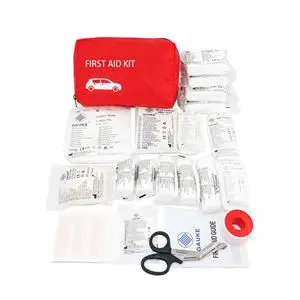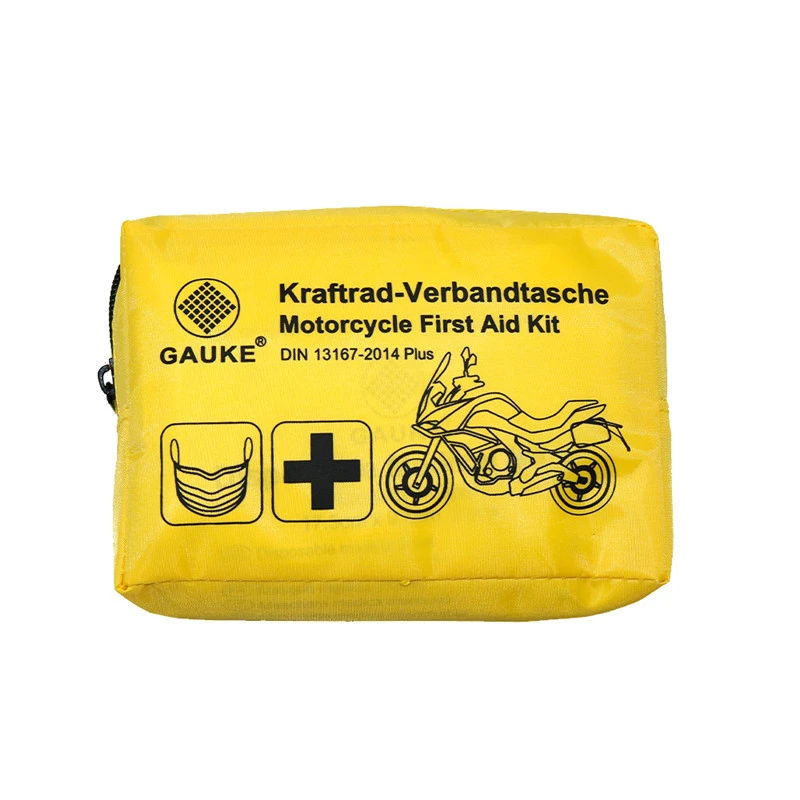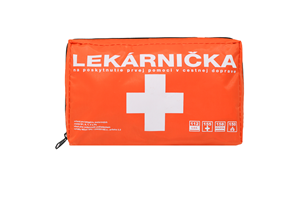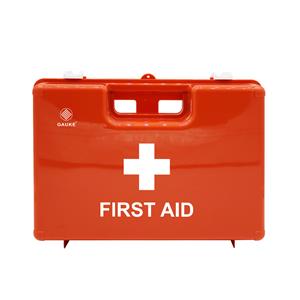Why Is It Important To Keep A Medical Care Kit In Your Car
Almost everyone will have to use a car first aid kit at some point in their lives. After all, you're just as likely to get a bump, bruise, bite, or wound while traveling as you are at home. Basic or comprehensive first aid kits are available in the market. However, because a pharmacy may or may not be nearby, Car First Aid Kits must be more comprehensive.
What you need in your Car First Aid Kit is dependent on your medical training and the distance between you and professional medical care. Ready-made car first aid kits are available from chain stores or outdoor stores.
You can make your car first aid kit by yourself too. You can get all items for your car first aid kit at a well-stocked drug store or online. You can buy the best car first aid kit or items for your car first kit from Gauke Healthcare.
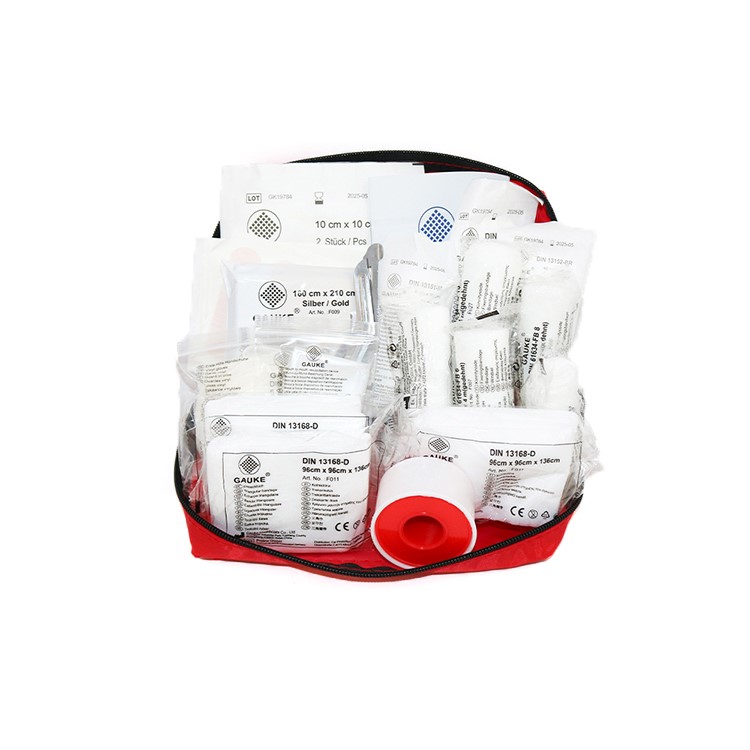
Uses:
You can use a Car First Aid Kit to treat the following mild traumatic injuries:
· Burns
· Cuts
· Abrasions (scrapes)
· Stings
· Splinters
· Sprains
· Strains
In addition to personal medical supplies, the car first aid kit should include products to treat typical infection symptoms, such as:
· Pain
· Gastrointestinal problems
· Skin problems
· Allergies
· Fever
· Nasal congestion
· Cough
· Sore throat
Important Contents:
It's crucial to keep a well-stocked first-aid kit in your car in case of accidents or injuries. A car first aid kit may include the following items:
Disposable Gloves:
They are excellent for cleaning up places where blood or other bodily fluids have been spilled.
Some people are allergic to latex, a common substance in disposable gloves. Stock up on non-latex gloves made of nitrile or neoprene to be safe
Antiseptic Wash Or Wipes:
You can clean a fresh wound with soap and clean water. If you don't have any, use an antiseptic wipe. Antiseptic wipes are an excellent alternative. You can use them to clean your hands before giving first aid too.
Scissors:
A pair of small curved medical scissors are worth the price because their blunt ends make them safer and easier to handle than craft scissors.
Adhesive Bandages:
Minor cuts, scrapes, and blisters require the use of adhesive bandages. They come in many shapes and sizes to cover various injuries, so pack your car first aid kit with as much selection as possible.
Cotton wool:
Cotton is useful for wound cleaning, cushioning, and protection.
Eyewashes:
You can use eyewashes to remove a foreign object from the eye or remove harmful chemicals.
Medical Rubber Tourniquet:
Tourniquets assist in stopping blood flow to a cut and reducing blood loss. When not handled appropriately, they can be harmful. Understand when a tourniquet may be required.
Antibiotic Ointment:
Before covering a wound, apply antibiotic ointments directly to it or an adhesive bandage or gauze pad. There are many topical antibacterial drugs, such as Bacitracin, Neomycin, and Polymyxin. These preparations can aid in stopping bacterial growth, which may cause infection and poor healing.
Elastic Bandage:
It can be useful for firmly covering an injury to prevent swelling, as a tourniquet, or to hold cold packs or gauze in place.
Sterile Gauze Pads and Medical Tape:
Medical gauze that has been sterilized to prevent microorganisms from entering an open wound should always be included in a car first aid kit. To stop bleeding or cover a wound that is too large for an adhesive bandage, use a length of gauze or pre-cut gauze pads. Clean the wound first, then apply gauze and tape to keep it in place.
Sting And Bite Treatments:
Pack calamine lotion or hydrocortisone cream to relieve itching from bug bites.
Thermometer:
A simple digital oral thermometer is an economical choice for a car first aid kit. Glass thermometers can break, so do not include them.
Painkillers:
Pain relievers such as Paracetamol, Aspirin (not for children under the age of 16), or Ibuprofen
Tweezers:
Needle-nose tweezers made of surgical steel are an excellent choice for car first aid kits due to their fine tips. Tweezers are useful for removing splinters, thorns, insect stingers, and ticks. They are sturdy, easy to use, and offer precision.
Cigarette Lighter:
It is useful for disinfecting instruments and building a fire in the woods (to keep warm and to make smoke to signal for help, for example)
Phone Card:
Having at least 60 minutes (and no expiration date), as well as at least ten quarters for pay phones and a list of people to contact in an emergency
Things To Remember:
You should know how to utilize all supplies in your car first aid kit, especially the medications. Teach your family members about the car first aid kit items too.
· Place bandages in one bag and medicines in another.
· Along with a car first aid kit, have a waterproof container stocked with supplies that will come in handy in the case of a roadside emergency, such as a blanket, a flashlight, an extra phone charger, and bottled water.
· Check your car first aid kit regularly for expired products, materials that are running low, and expired digital thermometer batteries.
· If someone in your family is allergic to bees or insects, you should include an Epi-Pen (epinephrine injection) in your car first aid kit.
· Car first aid kits can assist people to treat minor injuries or other medical issues on the spot. Call medical help, or go to the nearest emergency hospital if you have a serious injury, such as a severe wound that didn't stop bleeding or trauma to the head.
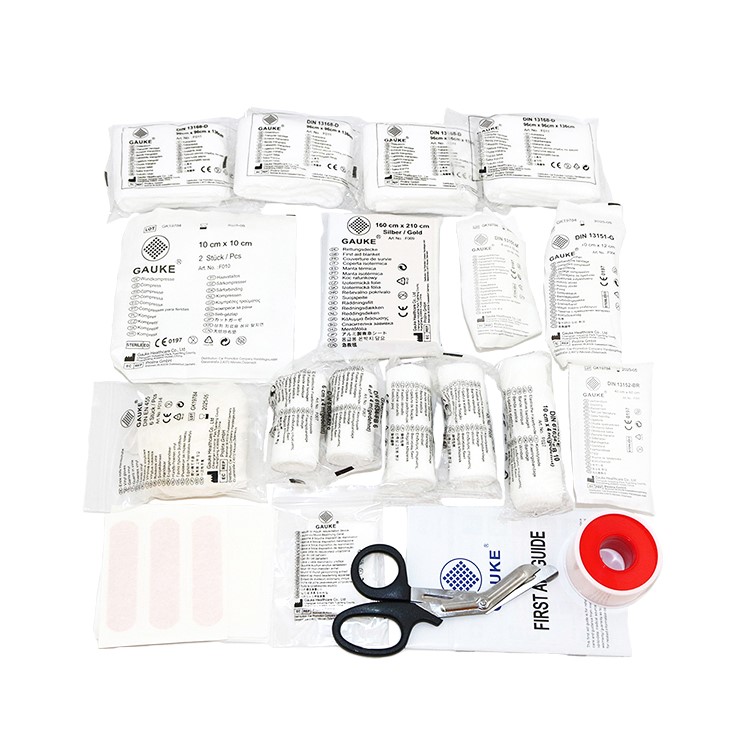
A car first aid kit is a useful tool that contains essential medical items that will assist you in dealing with common injuries and accidents. Investing in a well-stocked car first aid kit can prepare you and your loved ones to manage common injuries and emergencies. You never know when you might need to give or get basic first aid. Consider taking a car first aid kit to be ready for unexpected circumstances.
Gauke Healthcare provides the best ready-made car first aid kits and items for your car first aid kit. You can buy from Gauke Healthcare Online here.

